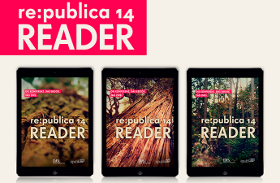Kurzthese:
Beschreibung:
Our cities are now blanketed in thick layers of digital data. Much like the megalopolis of William Gibson’s Neuromancer--”Chiba City”, cities have now become interfaces, open layers which enable to record our geographic lives.
The increasing ubiquity of individual data-shadows--the digital traces we leave behind us as we move through physical space, augmented by mobile devices--created a rich digital layer that now dictates how we experience space and place. We choose our destinations on Yelp, find our way on Google Maps, and let our friends know where we are through geo-tagged tweets. As we increasingly map and then view our world through sensors and interfaces, we end up leaving some areas completely digitally blank. Not everyone contribute to the generation of this digital layer, and as a result certain urban communities are wiped out of the digital urban landscape. This session reviews findings from the study of digital gentrification in two London neighborhoods. It then poses a challenge to the participants: how can we redesign our digital geographies to truly act as progressive places? How can we overcome digital exclusion and rediscover these blank spaces?
Some solutions aimed at unleashing the potential of accessible digital data to redesign how we experience cities sought to reintroduce serendipity. Integrating randomness into our local motions, letting us explore urban spaces as a flanêur, sending us beyond our local comfort zone. But the challenge to go beyond the available data and the the limited scope of geo-tagging sensors remains. In this session, together with the participants, we will explore new ways of tinkering with maps, layering datasets, and come up with wild and unexpected ways to address the following questions:
- How can we create a better digital layer that will facilitate shared experiences of the city?
- What are the limits of open databases and when do we need to go into the city and dig for more?
- When designing for serendipity, can we ensure we are avoiding digital gentrification?
- What are the actual barriers to participate in mapping physical space?


